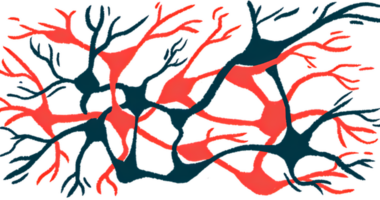
Experimental Treatments for Parkinson's Disease
ACI-7104
ACI-7104 is an experimental injectable vaccine designed to slow or prevent neurodegeneration in people with early Parkinson’s disease. It works by prompting a patient’s immune system to produce antibodies against a man-made peptide that is very similar to alpha-synuclein.
Anavex 2-73
Anavex 2-73 (blarcamesine) is an experimental oral treatment being developed to treat Parkinson’s disease dementia and other neurological conditions.
Buntanetap
Buntanetap is an investigational oral therapy being evaluated as a possible treatment for Parkinson’s disease.
CNM-Au8
CNM-Au8 is an investigational therapy being developed for Parkinson’s and other neurological conditions. It is an oral drinkable solution of gold nanocrystals with characteristics that may help protect dopaminergic neurons and improve their survival.
ND0612
ND0612 is an investigational liquid formulation of levodopa/carbidopa being developed to treat motor fluctuations in people with Parkinson’s disease. The therapy is designed to be continuously administered as an under-the-skin infusion using a pump.
NPT520-34
NPT520-34 is an experimental small-molecule therapy that has been shown to reduce neuroinflammation in preclinical studies of Parkinson’s disease. It is administered orally and is small enough to be able to cross the blood-brain barrier, a highly selective, semipermeable membrane that isolates the brain from the blood circulating in the body. The potential therapy is currently in Phase 1 testing.
NTCELL
NTCELL is an experimental cell therapy, delivered via a surgical procedure into the brain, that is designed to restore nerve cell function and slow disease progression in people with Parkinson’s.
PF-05251749
PF-05251749 is an experimental oral therapy for “sundowning” in Alzheimer’s disease and irregular sleep-wake rhythm disorder in Parkinson’s disease. PF-05251749 is a small molecule that inhibits CK1E, a key enzyme involved in regulating circadian rhythms, preventing “nighttime” proteins from being produced during the day. It has been studied in Phase 1 trials in healthy volunteers.
Prasinezumab
Prasinezumab is an investigational antibody against alpha-synuclein, a protein that builds up into toxic clumps in Parkinson’s disease, that is being developed as an intravenous (into-the-vein) infusion to slow the progression of Parkinson’s.




